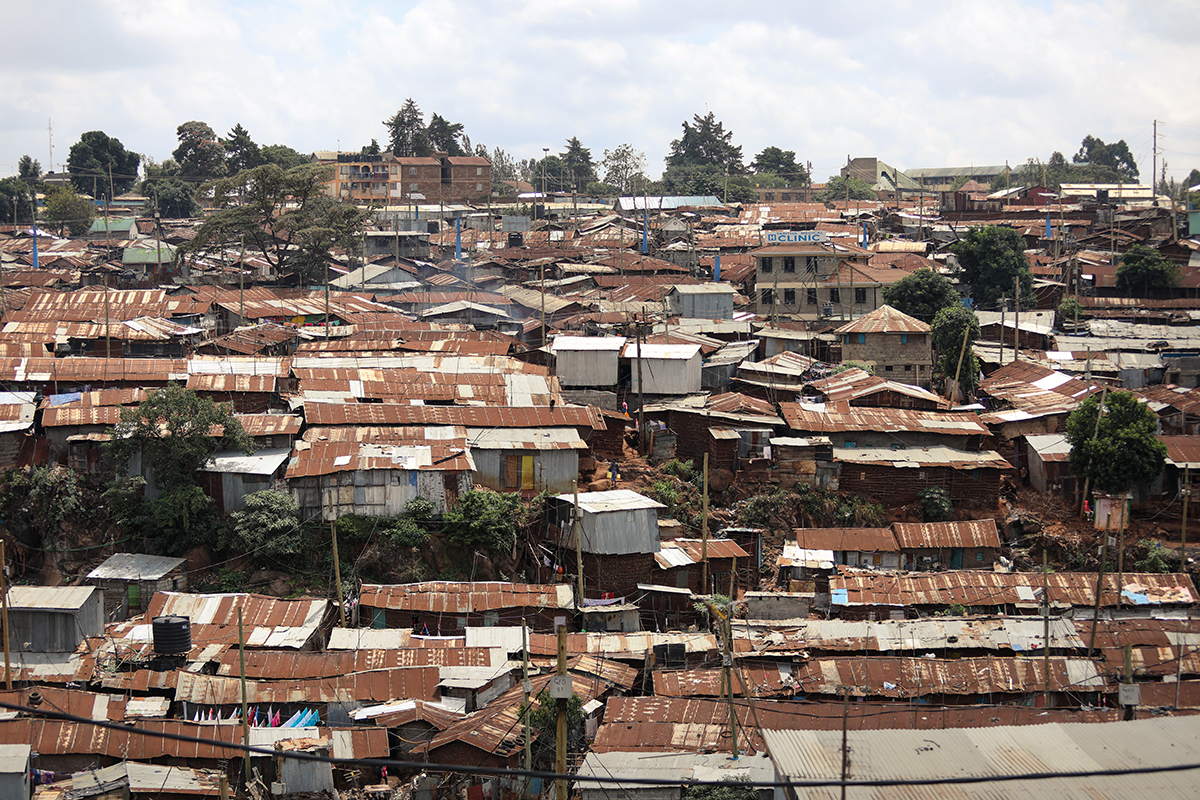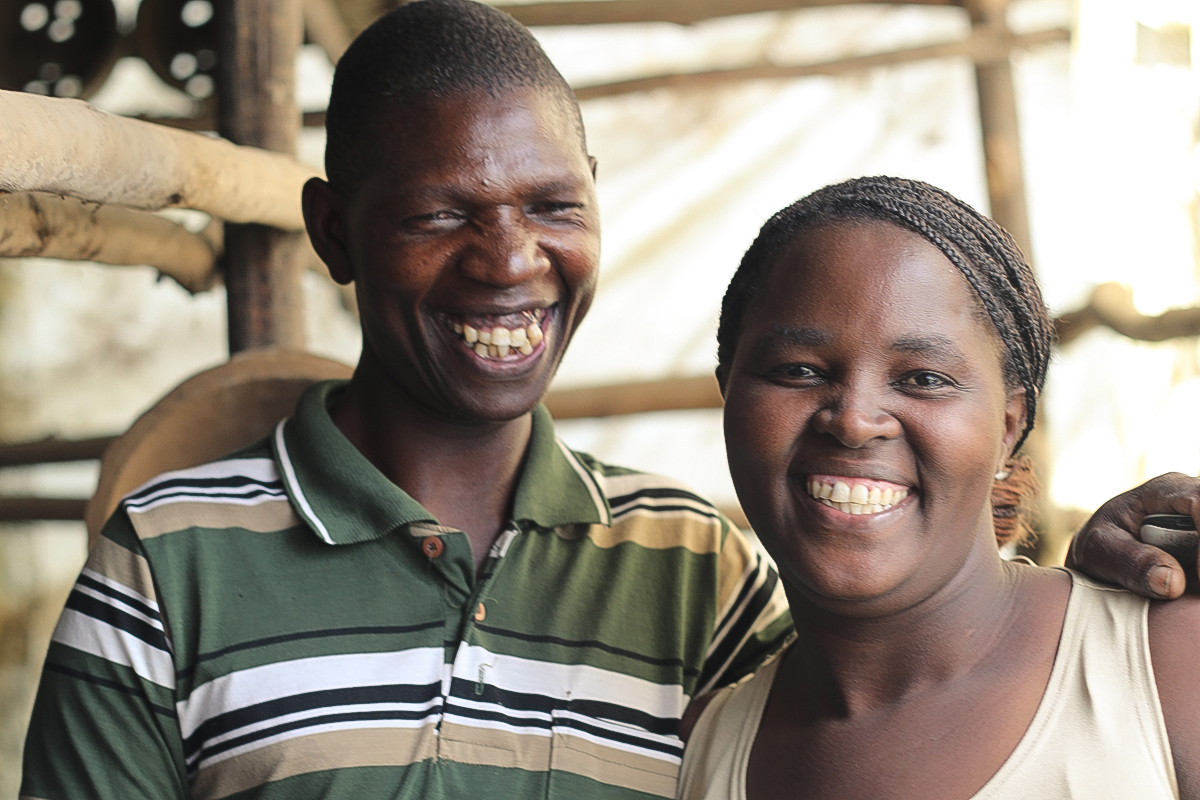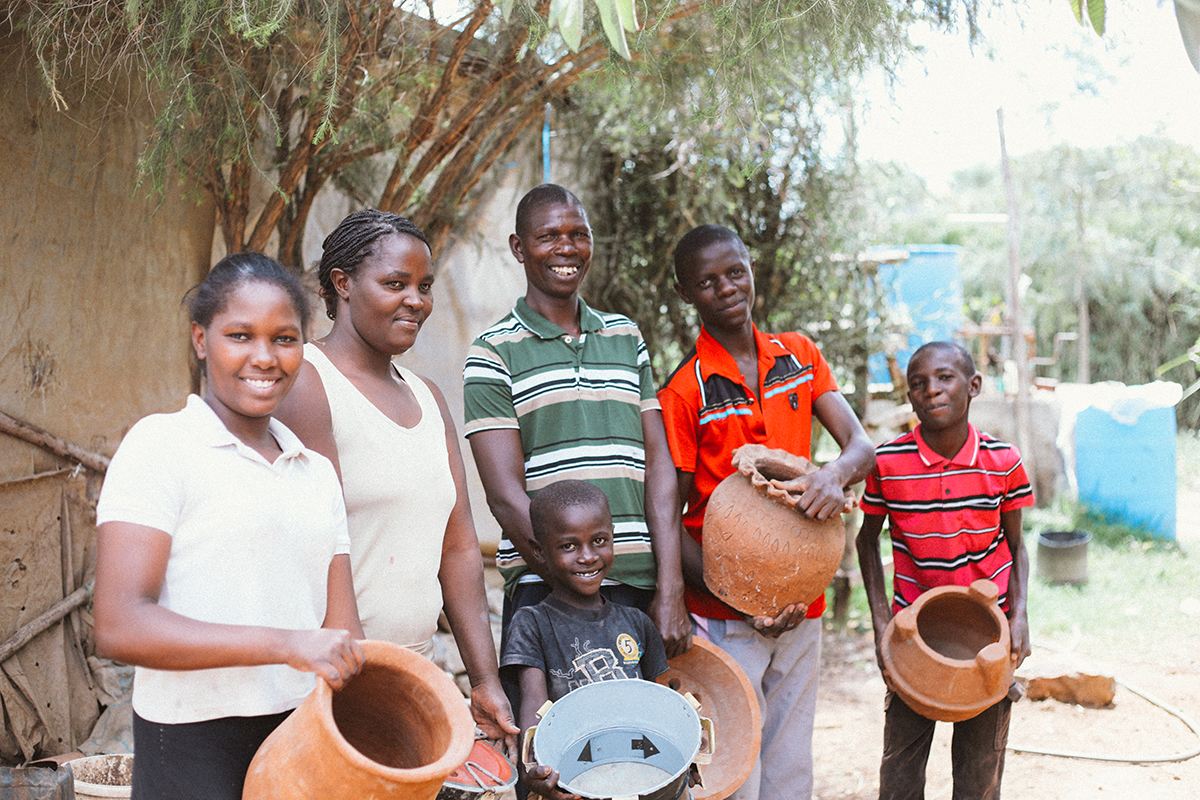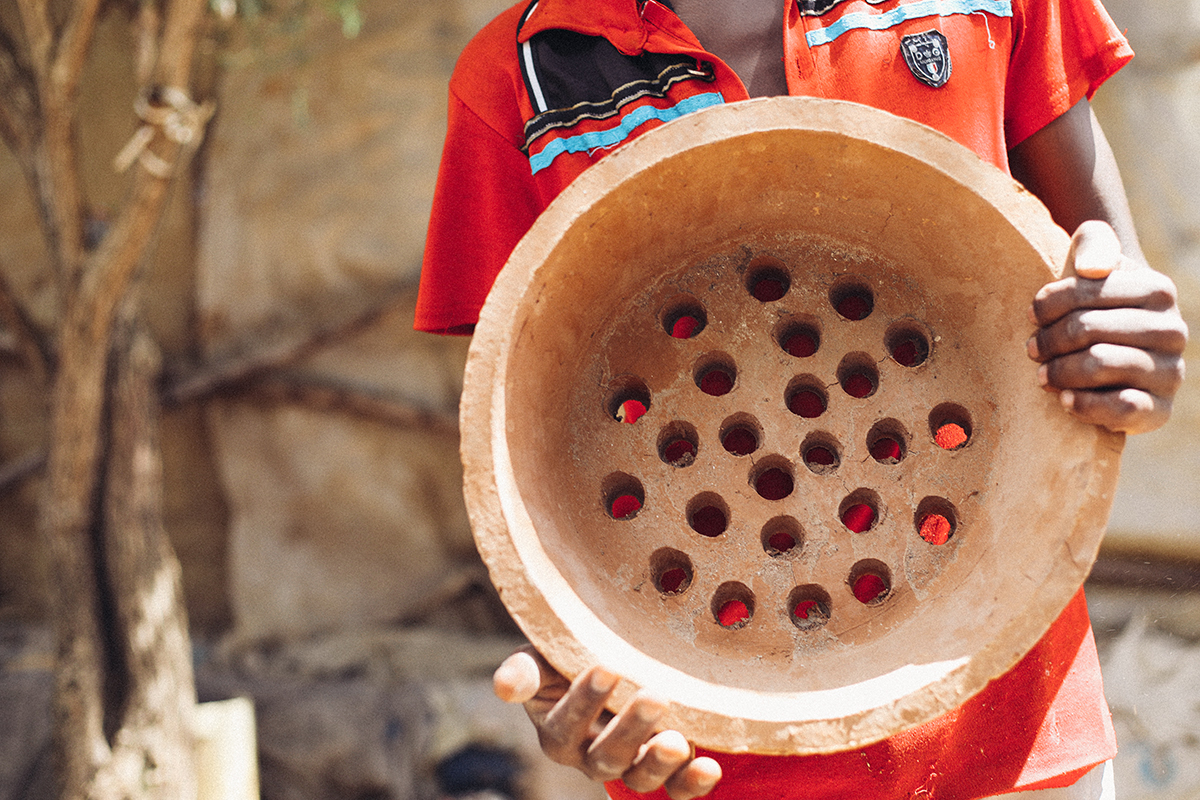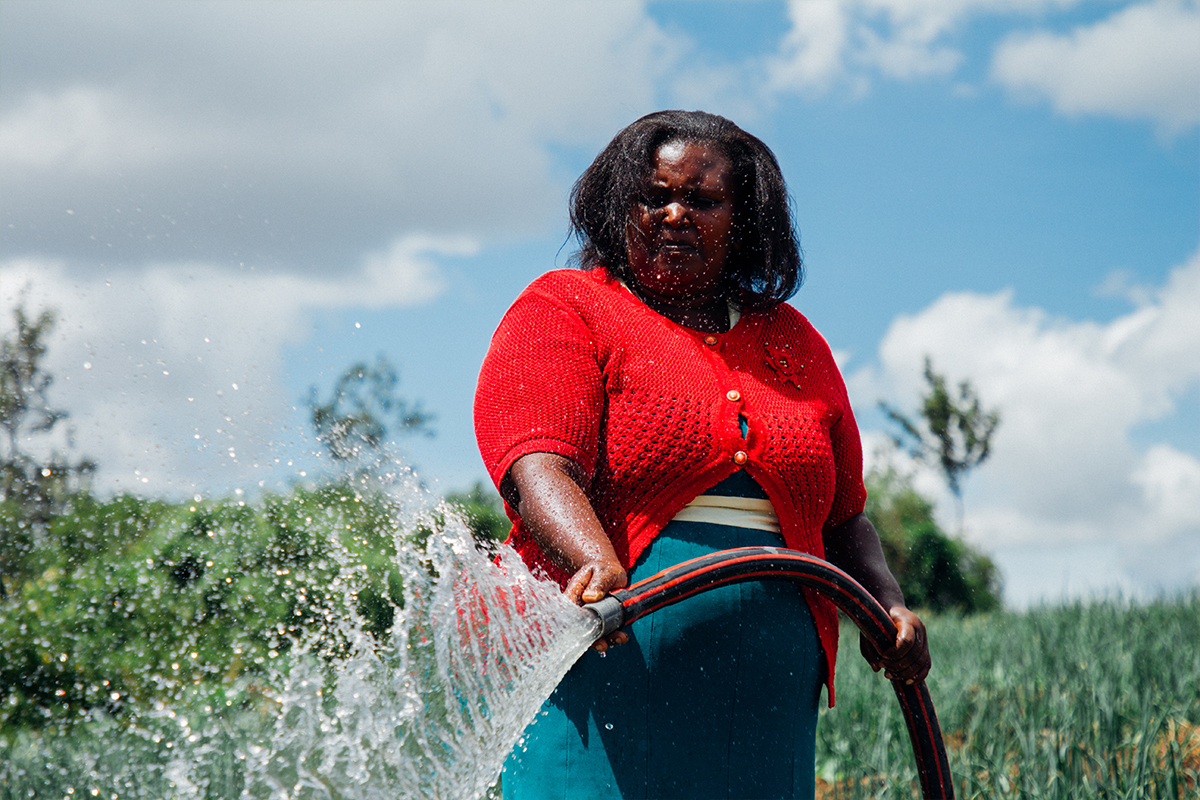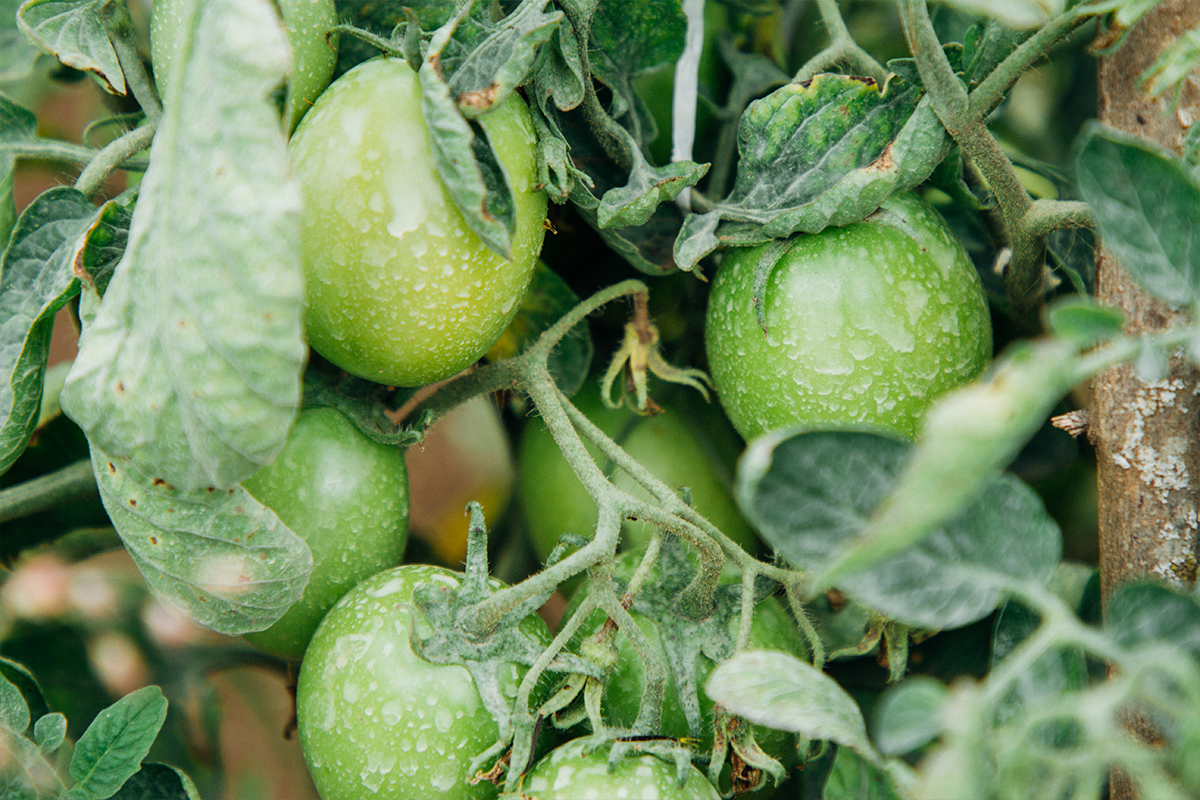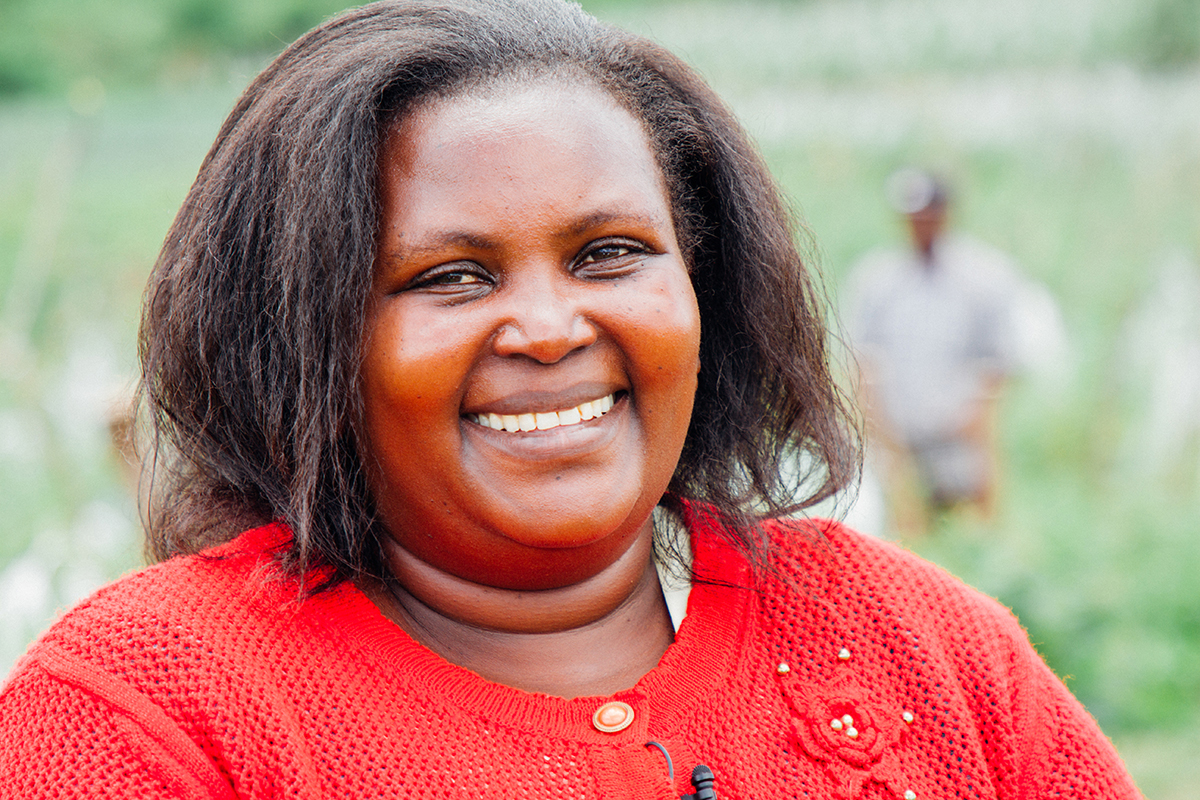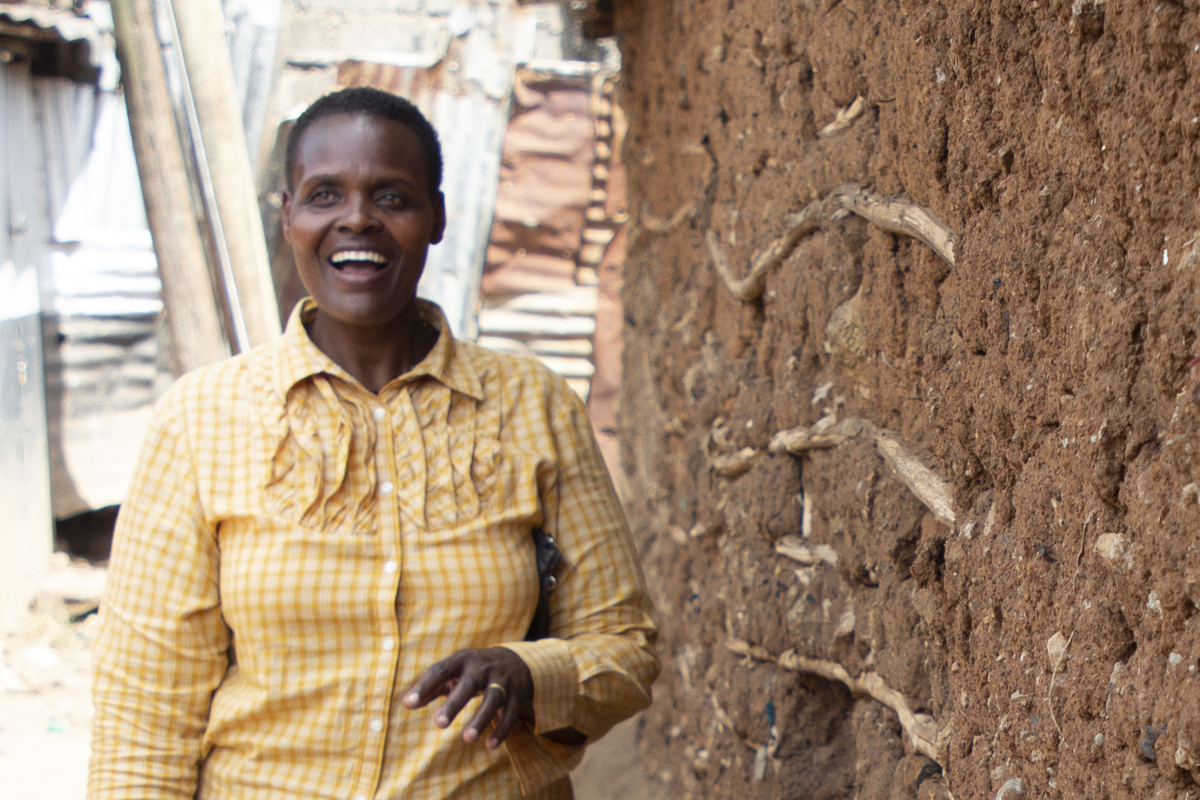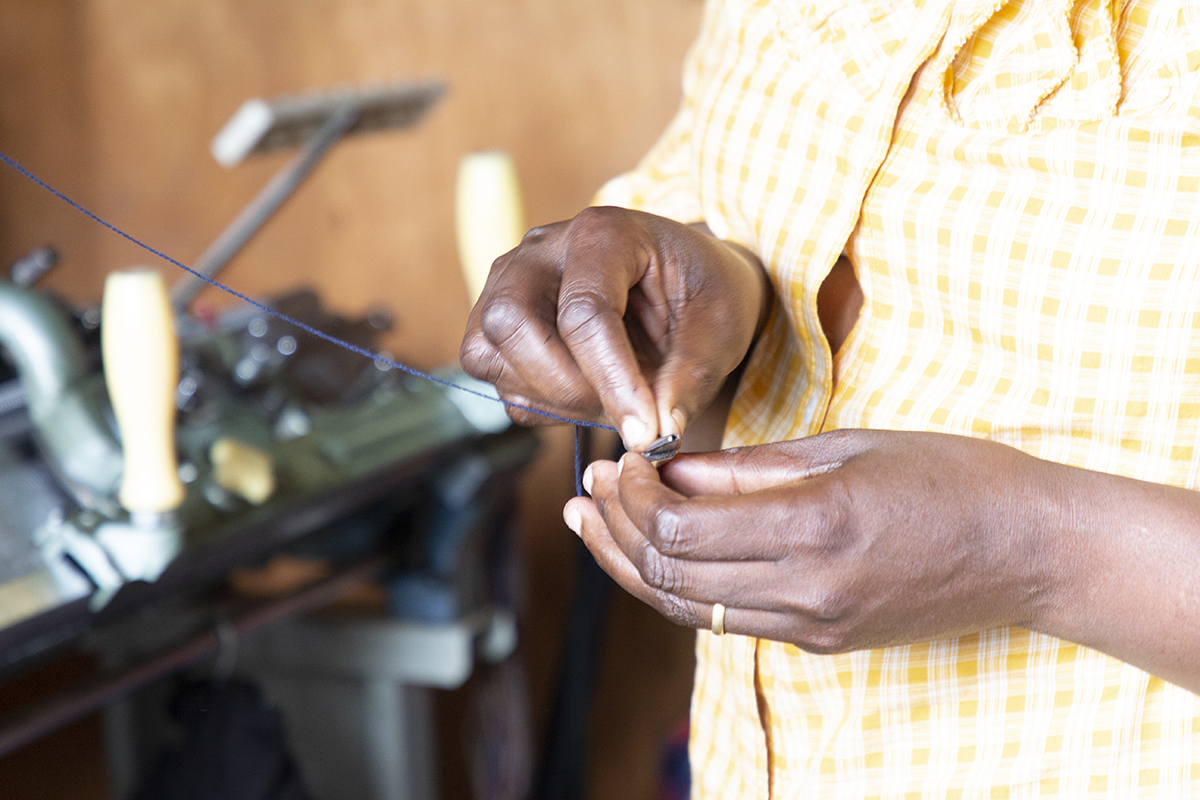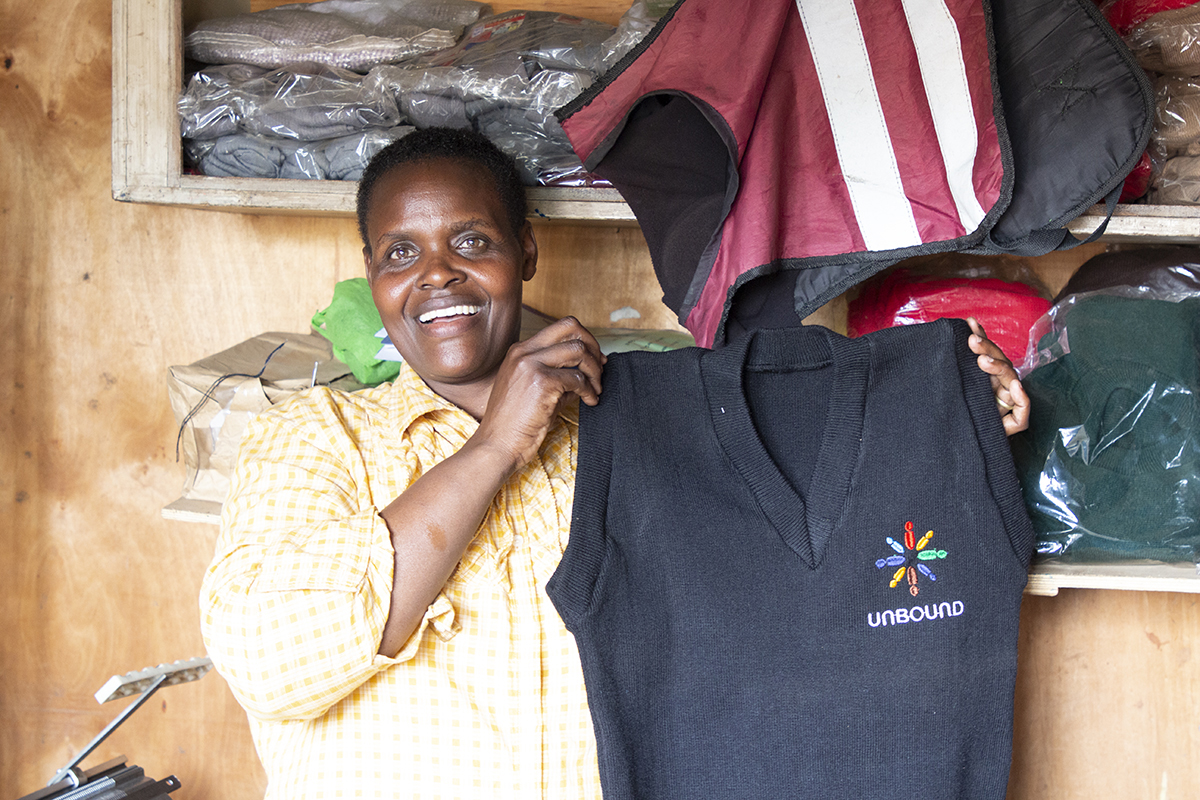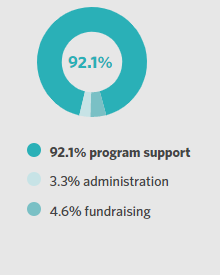Co-Ops give members 'the ability to help yourself'
Editor’s note: This story about Unbound’s savings and credit cooperative in Nairobi, Kenya, was written before the COVID-19 pandemic. The funds available to families through the co-op are critical, now more than ever, as families experience the pandemic’s severe economic effects.
On any normal business day, in cities around the world, shareholders in various enterprises gather to discuss their mutual business interests. They have name badges and pocket folders with company logos, and while they squint at PowerPoint presentations filled with graphs and arrows, they talk about year-end projections and bottom lines.
A different kind of shareholders meeting happened on a January morning in 2017 in Nairobi, Kenya. This one didn’t take place in a downtown high-rise or an airport hotel, but at a Franciscan retreat house. Instead of three-piece suits or business casual, those who attended wore bright yellow shirts embroidered with the Swahili words “Uwezo wa Kujisaidia.”
That phrase, meaning “the ability to help yourself,” points to the real difference between this shareholder meeting and others. These participants, most of them women, weren’t concerned about their portfolios. They were concerned, that day as every day of their lives, about survival.
The women were delegates from small community groups that combined to form Unbound SACCO Limited, a savings and credit cooperative begun in 2014. They were there to launch their new corporate five-year plan. While that might be reason enough for any group to celebrate, for them it meant the next step on a long, hard journey out of poverty toward self-sufficiency.
Most of the women had already reaped dividends from the SACCO. Jane had taken a loan to buy supplies for the sundry shop she runs out of her home. Caroline used her loan to pay school fees for her son, who aspired to be a welder. Catherine bought a milking goat with her loan and got a bonus when the goat turned out to be pregnant.
While modest, the investment capital these women acquired with their loans is almost unheard of among the working poor of Kenya, who typically earn less than $2 a day for the kind of informal work they're able to find: taking in laundry, selling produce at roadside stands, farming and day labor. They’re used to a hand-to-mouth existence that leaves little room for personal ambition.
Catherine, Caroline, Jane and all the women present at the delegates' meeting that day were mothers of children sponsored through the international not-for-profit organization Unbound. Some had come from the congested slums of Nairobi and some from remote villages beyond the city. They spoke a variety of languages and represented a number of ethnic backgrounds, but they shared the common denominator of poverty. Now, they also shared hope.
The sprawling Kibera slum sits close to the center of Nairobi. It’s often called “Chocolate City” because of the rust-colored roofs of its dwellings. Loans from the Unbound SACCO have helped many families living in Kibera create new ways to earn income.
recognizing opportunity
While the local support groups are mainly comprised of mothers, some fathers also participate. James didn’t attend the gathering at the retreat center, but like those who did, he exemplified the potential of the Unbound SACCO. A 54-year-old father of five, James and his wife, Nancy, were also raising an orphaned nephew and niece. They lived in a shanty in Ruiru, a growing community on the outskirts of Nairobi.
On meeting James, it was easy to imagine that, were he not born into poverty, he might have become a mover and shaker in the business world. When his son became sponsored through Unbound, it didn’t take James long to see the possibilities for his family.
During those times [before Unbound], sometimes we would go to sleep hungry. We were eating one meal in a day because we could not afford it. But when the chance [for sponsorship] came, all that started changing. Before, the children would go to school tattered, clothes were torn. But after, we got the money to start buying books and clothes. They started to become healthy. There was a very great improvement.
— James, Unbound father
James was quick to recognize that, along with the material benefits of sponsorship, being part of the Unbound community offered a practical way for his family to build for the future. His ambition and the Unbound SACCO would prove to be a great fit.
Communities of compassion and support
Unbound works in 19 countries in Africa, Asia and Latin America. While continually evolving in its methods, the heart of the program has always been the relationship between an individual sponsor and the child or elderly person living in poverty for whom they provide financial and moral support. It's the relatively small monthly contributions from each of Unbound’s 250,000-plus sponsors that fund the program.
The organization was founded in Kansas City in 1981 on principles expressed in Catholic social teaching, in particular the dignity of every person and prioritizing the needs of the poor and vulnerable. It began operating in Kenya in 1989.
Today, as in all of the nations where Unbound works, it's a recognized legal entity in Kenya, with a grassroots infrastructure and three primary program centers in the cities of Nairobi, Meru and Kisumu. Unbound employs more than 200 staff members and serves 26,265 families in 874 communities throughout the country. The Nairobi program is the largest of the three with half the total number of families served.
One of the most significant steps in the evolution of the Unbound program was the establishment of small, community-based support groups for the parents of sponsored children. The groups provide a "greater-than-the sum-of-its-parts" sense of empowerment for members and safe space for mutual encouragement. They also provide a practical structure for helping families through microloans aimed at starting or enhancing small businesses or personal livelihood initiatives.
While the particulars vary from place to place, the basic idea is that parents commit a small percentage of their monthly income to the group. That money accrues with interest and, when a member has a need, it’s available for modest personal loans.
The small support group concept originated with Unbound’s programs in India and has now been implemented in each of the countries where Unbound works. For various reasons, mostly cultural, it has evolved differently in different places, and has been embraced enthusiastically in Kenya, where the groups are known as SMGs, or Support Mothers Groups. The potential of these groups has now reached a new level with the SACCO.
Joseph and Eunice are members of the Unbound SACCO in Nairobi. By procuring loans, they were able to create a business making and selling clay cooking stoves like the one pictured below, right. Below, left, they show off some of their other wares with their children (from left) Monica, John, Samuel and Peter. Monica and Samuel are sponsored through Unbound.
Power in numbers
As the local Unbound parent groups took root, the idea of joining them to form a SACCO began to emerge. Each group already, in a relatively small way, fulfilled some of the functions of a credit co-op for their members. Now, by combining the financial resources of the individual groups, they could build the kind of robust economic power none of the groups could ever achieve on their own, and accomplish something the working poor rarely have the opportunity to do — let their money work for them.
Peter Ndungo, director of Unbound’s Nairobi program, has seen the wisdom of uniting the Unbound parent group model to the stability and potential of the SACCO.
“Unbound SACCO has blossomed over time out of Unbound mothers’ diligence, mutual accountability and commitment in their small communities,” he said. “Our journey began in the year 2007 when these mothers came together in Nairobi to start Support Mothers Groups (SMGs). After seven years of growth, these groups have transformed to be the solid foundation under which the SACCO is anchored.
“This foundation will enable the SACCO to fulfill its mission of becoming an efficient microfinance organization that contributes to poverty alleviation through financial inclusion, [along with the] provision of entrepreneurial and innovative financial services and products.”
Unbound SACCO Ltd. was registered with the Kenyan government in 2014. As of March 2020, its assets exceeded $5.6 million. It complies not only with the strict accountability requirements of the government, but also with the equally rigorous checks and balances built into the Unbound program.
In order to take a loan, an individual member must have built up enough savings to cover the amount, or gotten another member to serve as a loan guarantor. Before any loan is approved, it must be approved by elected small group officials and the credit committee officers in Nairobi, no fewer than six people.
At the time this story was written, Catherine, the mother who acquired the pregnant milking goat, was serving a term as an elected member of the Unbound SACCO credit committee. She was one of those charged with reviewing and signing off on the loan applications.
“There are three of us who appraise loans,” she said. “Then someone will approve. The next person who will be approving will also go through the same process of confirming that the information is correct, that the amount I’ve given is correct.”
Finally, the loan must be authorized by the Unbound staff members who oversee the SACCO and are responsible for the disbursal of sponsorship funds.
Dan Pearson, Unbound’s director of international programs, said the fact that the women themselves are taking on the responsibility of administering the SACCO is significant.
These mothers in Kenya are showing that they are capable of much more than most people thought. Many people didn’t imagine they could be reliable bank customers, but they are showing that they even have the abilities to be successful bankers. Women who had limited opportunity for education and few opportunities to demonstrate their skills are eager to demonstrate their skills.
— Dan Pearson, Unbound’s director of international programs
With the advent of mobile banking, receiving sponsorship funds and managing SACCO loan assets became easier for the women, most of whom had little experience with banks and were often intimidated by the monolithic financial institutions. Now, with the ready availability of inexpensive cell phones, they receive funds via M-Pesa, a mobile-phone-based financial transfer service widely used in East Africa.
“It was a lot of struggle for our mothers,” Lucy Njenga, an accountant with Unbound in Nairobi, said. “We needed to rethink how to help our mothers. Remember, these are mothers who are really waiting for this money, maybe to buy goods for their children to go back to school or even pay school fees. ... Now the M-pesa accounts are in operation, and it is very efficient because at the comfort of wherever they are, they just receive a message in their phone [that they’ve] received this amount of money.”
Diana Rose is the mother of sponsored youth Gregory. She lives outside of Nairobi, Kenya, where she belongs to an Unbound mothers group. In 2015 Diana started a farm, which she’s gradually built up with loans from the Unbound SACCO. Today, she grows a variety of crops to sell in local markets.
answering when opportunity knocks
The key to using the SACCO to one’s advantage is the building of individual credit through a commitment to personal savings. James, who needed only the SACCO for his entrepreneurial spirit to take flight, spoke of the encouragement his and other families received from their parent support group and from the local Unbound staff.
“They advise us very well,” he said. “They teach us very well. They always say, ‘Even if you are poor, try to save something. Try to save something for tomorrow.’ So when I joined in 2012, I started saving.”
The financial strength of the Unbound SACCO makes it possible to incentivize saving. In the early years, for every dollar a family saved, the SACCO provided an additional one. James took full advantage, and within nine months of joining had saved enough to be able to secure a loan of 1,800 Kenyan shillings (roughly $17.50).
He used the loan to buy four chickens, which soon started producing eggs. With the money earned from selling the eggs, the family was able to pay back the loan in only three months. James wanted to pay the loan quickly because he understood the importance of maintaining good credit if he were to take additional loans, which he’d done on multiple occasions. Each time he borrowed more than the time before, used the money to increase his stock of poultry and for other endeavors, and promptly repaid the debt.
James’ story demonstrates the importance of a loan recipient having a viable business plan, including a reasonable timetable for repayment. Experienced parent group members, along with Unbound social workers, help new applicants form their plans. While the plans might seem modest by the standards of the economically developed world, for the families in the Unbound community they represent a significant leap of faith.
Catherine first came up with her plan after being frustrated by the lack of fresh milk in her community.
“So now I’m not buying milk,” she said. “I’m getting something from my goat. I’m getting milk and I’m selling some. So, where I was last year, I’m not there now. Come next year, maybe I’ll have three goats.” Jane, who served as the secretary of the SACCO credit committee, shared Catherine’s entrepreneurial spirit and saw an opportunity to encourage other mothers.
“I bought some items which I always sell,” she said. “Detergent, soap, [disposable diapers] for the kids. I had applied for 26,000 shillings [$252]. ... So, if you do something good and then a neighbor sees that, they say, ‘Jane is up there and I’m here. I’d like to be like her.’ And then when we go to the [parent support group] meeting, when you talk to them, you take them through it and then you tell them, ‘If you do this today, you invest in a better tomorrow.’”
Peris belongs to her local Unbound mothers group. She’s also a member of the Unbound SACCO. She took a loan to buy a sewing machine, which she uses to make school uniforms and other apparel that she sells from her shop in the Kibera slum in Nairobi.
A Bright future ahead
All indications are that the successful first few years of Unbound SACCO Limited will be just the beginning. Peter Ndungo said the decision to establish the co-op might one day be seen as a watershed moment.
“The SACCO is well grounded to deliver its mandate of serving members and availing resources to better their lives through personal loans, returns from interest on deposits and dividends,” he said. “It has created more opportunities for families to emerge from poverty into a dignified and self-reliant life.”
Ndungo also believes the SACCO will be, for many families, the key to escaping life in the congested urban slums where, according to United Nations Estimates, 60% of the population of Nairobi lives
“It is clearer now than ever before that families living in the slums are on the path of gradually owning homes in less congested localities in the city periphery,” he said.
The more than $5.6 million in assets that the SACCO now holds is likely to grow exponentially in the coming years as a result of Unbound’s decision to allow families to retain membership even after children leave the sponsorship program. Instead of perpetually replacing members whose lives have marginally improved, the co-op will grow and its lending power will remain robust. More importantly, families that invest wisely over the long haul won’t be limited in what they can achieve.
Pearson said the implications of the Unbound SACCO’s achievements are far reaching.
“The success of the SACCO mothers has enormous potential beyond the immediate impact of creating a successful cooperative,” he said. “Their example is broadening and redefining the possibilities their daughters and other girls in the community imagine for themselves. And the mothers in other countries where Unbound works are also taking note and beginning to believe that they are capable of great and unexpected achievements.”
sacco in the pandemic
While the COVID-19 crisis has proved challenging if not calamitous for the working poor around the world, most of whom earn their living from the kind of informal jobs that have been the most impacted, the financial buffer the Unbound SACCO provides has been invaluable for its members. To help families ride out the crisis, the SACCO management team made some temporary adaptations.
“The management team, which has been meeting virtually, is allowing some flexibility in taking loans,” said Ernest Makulilo, Unbound regional project director for Africa. “They’re modifying requirements and processes and removing penalties in loan repayments because many mothers were unable to operate their businesses due to the COVID restrictions.”


